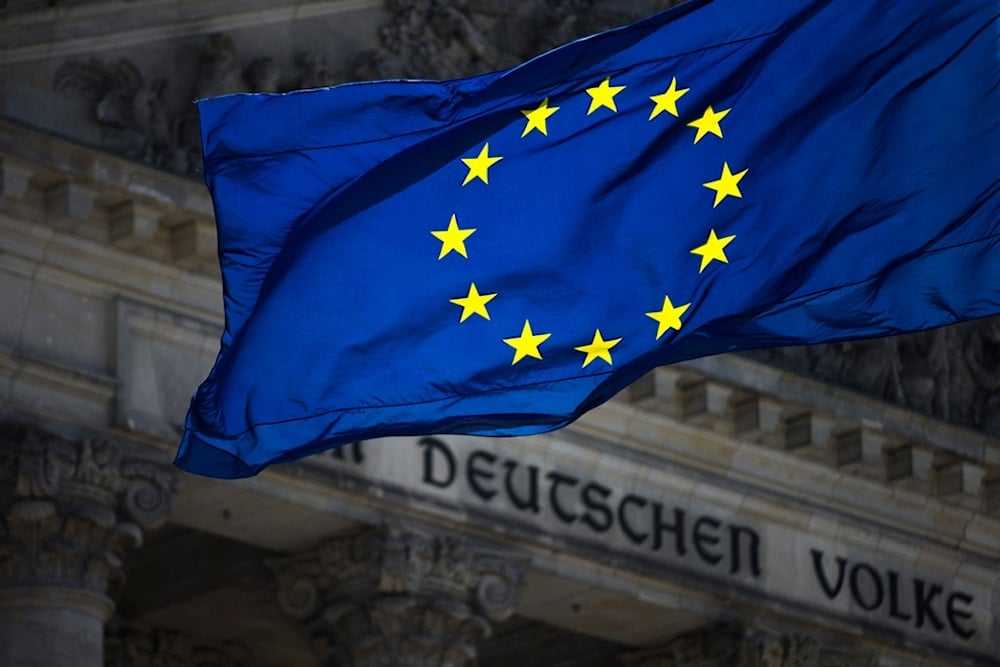EU prepares contingency plan amid US uncertainty over Ukraine aid
Concerns escalated after US House Speaker Mike Johnson dismissed President Joe Biden's request for $24 billion in additional Ukraine aid.
-

A European flag waves in front of the Reichstag building with the inscription 'Dem deutschen Volke' ('To The German People') in Berlin, Germany, Thursday, August 23, 2012. (AP)
The EU is preparing to step up its financial support for Ukraine amid concerns that the United States may withdraw from a $50 billion G7 loan deal under the incoming presidency of Donald Trump, Politico reported on Thursday.
The potential policy shift raises questions about the future of Western unity in supporting Ukraine against Russia.
Polish Deputy Finance Minister Pawel Karbownik, speaking at an event ahead of Warsaw’s EU Council presidency, discussed the risk.
"There is a risk that Donald Trump will pull out of the $50 billion agreement," he said, urging the US president-elect to clarify his stance to give the EU time to develop a contingency plan.
G7 Loan at Risk
The G7 agreement, finalized in October, allocates $50 billion to Ukraine, with the US and EU contributing $20 billion each and the UK, Canada, and Japan covering the remainder.
The deal uses $300 billion in frozen Russian central bank assets as collateral, with the funds intended to help Ukraine procure weapons and rebuild infrastructure.
Read more: G7 leaders allocate $50bln to Ukraine from frozen Russian assets
Concerns escalated after US House Speaker Mike Johnson dismissed President Joe Biden's request for $24 billion in additional Ukraine aid.
"We have a newly elected president and we're going to wait and take the new commander-in-chief's direction on all of that," Johnson said on Wednesday.
EU Readies Backup Plan
European leaders are signaling readiness to fill the gap if necessary. Karbownik suggested that in a worst-case scenario, "the bloc will make provisions as the EU to ensure that the $50 billion goes to Ukraine regardless of Trump."
European Commission President Ursula von der Leyen has stated that the EU could provide up to €35 billion on its own, using its €1.2 trillion seven-year budget as collateral.
The potential US withdrawal would force the EU to bear a larger financial burden, a move that could strain its resources and test internal solidarity.
Read more: Russian tit-for-tat: Western assets could be seized in Russia

 2 Min Read
2 Min Read









